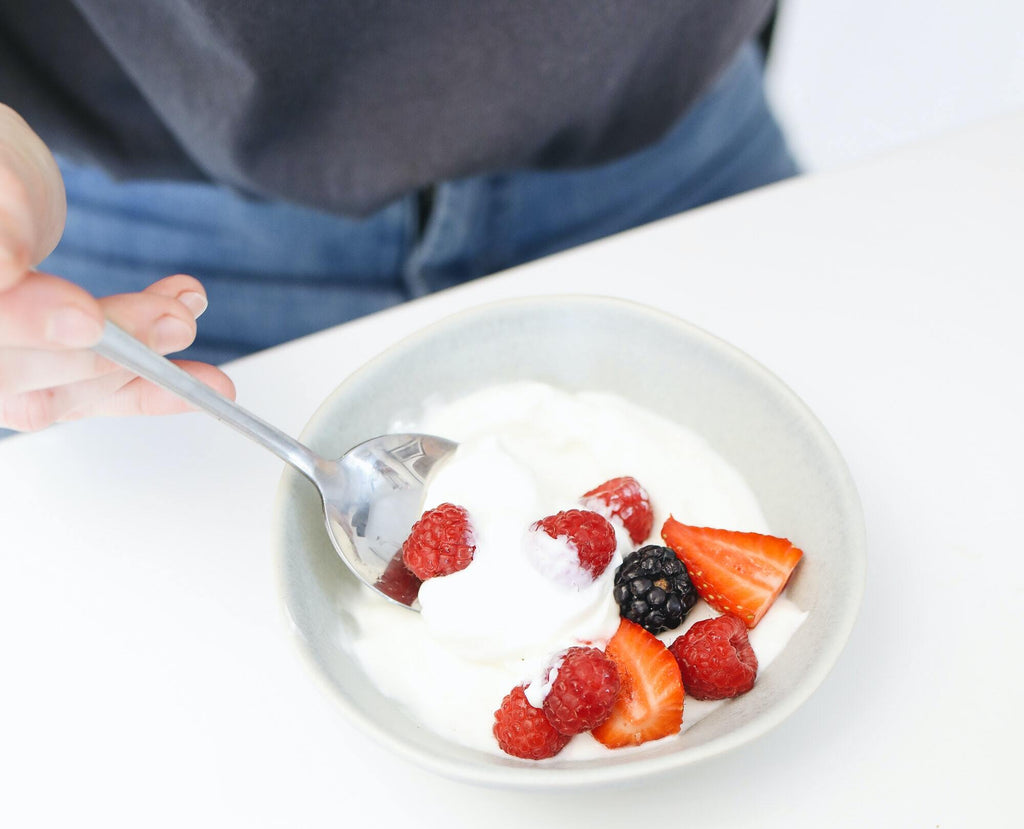
The Gut-Skin Connection
Have you ever noticed that your skin tends to break out, look dull, or suffer from inflammation when your digestive system is out of balance? This is no coincidence; it's a reflection of the intricate relationship between your gut and your skin. Let's explore this connection in more detail.
Your gut is home to trillions of microorganisms, collectively known as the gut microbiome. This diverse ecosystem of bacteria, fungi, and other microorganisms plays a vital role in maintaining overall health. One of its key responsibilities is to regulate inflammation throughout the body, and this includes your skin.
When your gut microbiome is in harmony, it helps to keep inflammation in check, leading to a clearer and more radiant complexion. On the other hand, an imbalance in the gut microbiome, known as dysbiosis, can trigger inflammation and skin issues such as acne, eczema, and rosacea.
Probiotics and Your Skin
Now that we understand the gut-skin connection, let's explore how probiotics can be a game-changer for your skin. Probiotics are live microorganisms, primarily bacteria but also some yeasts, that provide various health benefits when consumed in adequate amounts. These beneficial microorganisms are often referred to as "good bacteria" or "friendly bacteria" because of their positive effects on the body, particularly the digestive system.
Probiotics play several essential roles in the body, with a primary focus on gut health:
-
Balancing Gut Microbiota: The gut is home to a vast and diverse community of microorganisms collectively known as the gut microbiota. Probiotics help maintain a healthy balance of these microorganisms, promoting digestive and overall health.
-
Digestive Health: Probiotics aid in the digestion and absorption of nutrients in the gut. They can help alleviate some digestive issues.
-
Immune System Support: A significant portion of the immune system is located in the gut. Probiotics can enhance the gut's immune function, helping the body defend against harmful pathogens and infections.
-
Skin Health: The gut-skin connection is increasingly recognised. A balanced gut microbiome, maintained by probiotics, can contribute to clear and healthy skin by reducing inflammation and addressing some skin conditions.
-
Mental Health: Several research suggests a link between gut health and mental health. Probiotics may have a role in managing conditions like anxiety and depression by influencing the gut-brain axis, the bidirectional communication between the gut and the brain.
Common Types of Probiotics
There are numerous strains of probiotics, each with its unique properties and potential health benefits. Some of the most commonly used and researched probiotic strains include:
-
Lactobacillus acidophilus: Known for its role in maintaining gut health and supporting the immune system. It's often found in yogurt and other fermented dairy products.
-
Bifidobacterium bifidum: Helps regulate the balance of gut microbiota, particularly in the colon. It's commonly found in certain dairy products and supplements.
-
Lactobacillus casei: Known for its ability to improve digestion and support the immune system. It's present in yogurt and some fermented foods.
-
Saccharomyces boulardii: A beneficial yeast strain that can help alleviate some digestive issues. It's often available in supplement form.
Sources of Probiotics
Probiotics can be obtained from various sources, including:
-
Fermented Foods: Many traditional foods and beverages are naturally rich in probiotics, including yogurt, kefir, sauerkraut, kimchi, miso, and kombucha.
-
Supplements: Probiotic supplements are available in various forms, such as capsules, tablets, and powders. These supplements provide a concentrated source of specific probiotic strains.
Prebiotics and Synbiotics
In addition to probiotics, it's essential to mention prebiotics and synbiotics:
-
Prebiotics: These are non-digestible fibers that serve as food for probiotics. They help probiotics thrive in the gut. Foods rich in prebiotics include garlic, onions, leeks, asparagus, and bananas.
-
Synbiotics: A combination of probiotics and prebiotics. This synergy promotes the growth and activity of beneficial bacteria in the gut.
Self Care for Healthy Skin Through Gut Health

-
Probiotic-Rich Foods: Having probiotic-rich foods, such as yogurt, kefir, sauerkraut, and kimchi, can help your gut health. These foods introduce beneficial bacteria into your digestive system, helping to maintain a balanced microbiome and supporting clear, healthy skin.
-
Prebiotic Foods: Don't forget about prebiotics! Foods like garlic, onions, asparagus, and bananas provide nourishment for the beneficial bacteria in your gut, enhancing their growth and activity.
-
Fibre-Rich Diet: A diet high in fibre supports good gut health. This can help prevent skin issues like breakouts and dullness.
-
Hydration: Staying well-hydrated is crucial for both gut and skin health. Water helps flush toxins from the body, keeping your skin clear and hydrated.
-
Stress Management: Chronic stress can negatively impact gut health and trigger skin issues. Practicing stress-reduction techniques such as meditation, deep breathing exercises, and regular physical activity into your self care routine.
-
Limit Processed Foods: Processed foods high in sugar, unhealthy fats, and artificial additives can disrupt the gut microbiome and contribute to skin problems. Opt for whole, unprocessed foods whenever possible.
